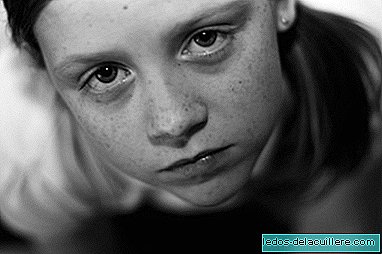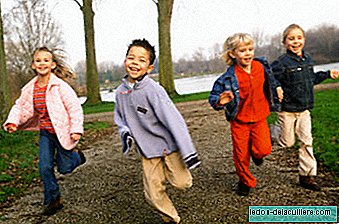
Once again, a paper has been presented in which the bullying is related to a worsening in the physical health of the victims. It conveys the idea that bullying it will have an impact on the health of the victims after the years, and this can be measured.
The researchers come from Duke University in the United States, and the study has been published by The Proceedings of the National Academy of Sciences (PNAS) under the name "Childhood bullying involvement predicts low-grade systemic inflammation into adulthood." It seems to be a recurring theme, since a few months ago we were already talking about other research (this time from Boston University), and a year ago JAMA Psychiatry warned about the psychological consequences of having suffered bullying. Unfortunately, while we are learning more about the effects of bullying, and we should design flexible and adaptive prevention strategies, social sensitivity seems to remain unchanged (and know that I say this hoping to be wrong).
William E. Copeland has coordinated this work for which data from the Great Smoky Mountains Study (an epidemiological resource) have been used. The latter is a population study that has obtained data from 1420 people, collected for more than 20 years, a prospective analysis, therefore. The participants were chosen at random.
How was the study done?
The members have been divided into three groups: victims, aggressors and victims / stalkers. Blood levels of C-reactive protein (acronym PCR) have been measured. This protein is a biomarker of chronic inflammation that is related to cardiovascular risks and metabolic syndrome.
The results indicate that with the passage of time, the victims had higher levels, and those who had been both victims and stalkers, were at the same level as people who had never suffered episodes of intimidation.
Therefore, being a victim would increase inflammation levels in adulthood. Instead it seems that being a stalker is a level of protection
And what about the stalkers?
Look how good! (It is irony, of course), that it has been discovered that stalkers verify with satisfaction how their little noble actions are socially rewarded, so their CRP levels are lower.
This would not happen (to get a reward in exchange for a bad action) if instead of laughing at them, the group refused to accept their actions, and teachers will give them the opportunity to reflect on the behavior and amend it.
Because there is a concept called ethics, which is possible to take advantage of, and which can also mediate in obtaining social rewards, only through other healthier ways for everyone (read between the lines to be a good athlete or the best speaker of the school, participate in charities ... the list is endless)
The statistics say that one in four Spanish children are harassed (Do not tell me there are not many) and 500,000 receive intimidation very often or intensely. Are these data true? Well, I don't know, everyone who collects information from their children's school, and compares it to get an idea. I tell you that in my son's class (5th grade in a two-line public school) there are two girls who are suffering harassment (that is, HARASSMENT, no small inconvenience or unfortunate words); Another one has suffered the same ... Is this a lot? Yes, the truth, considering that there are 20.












